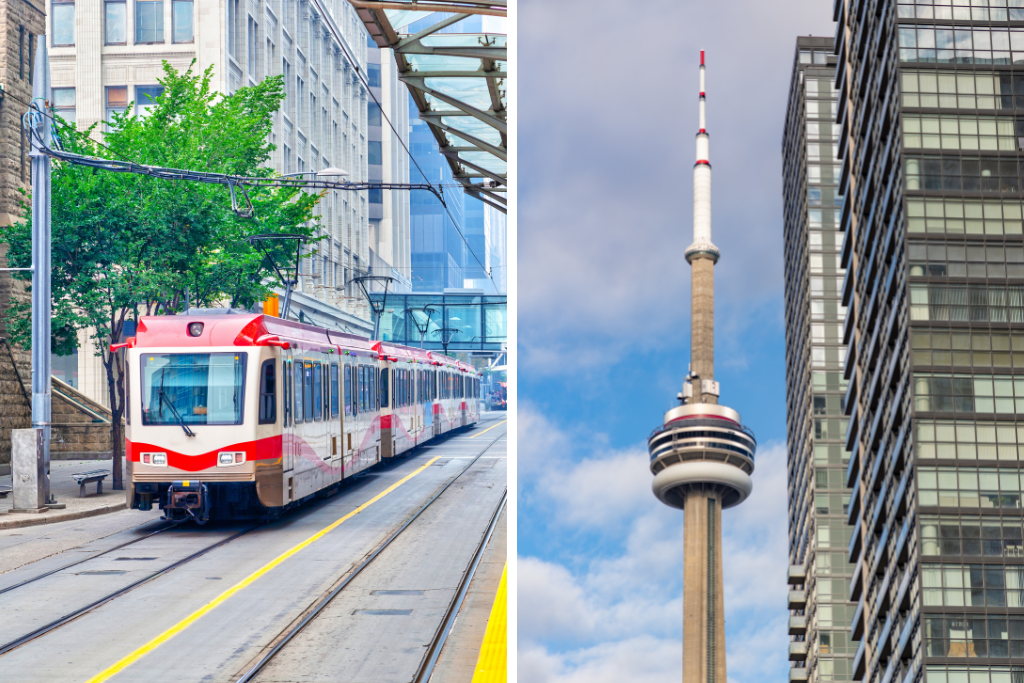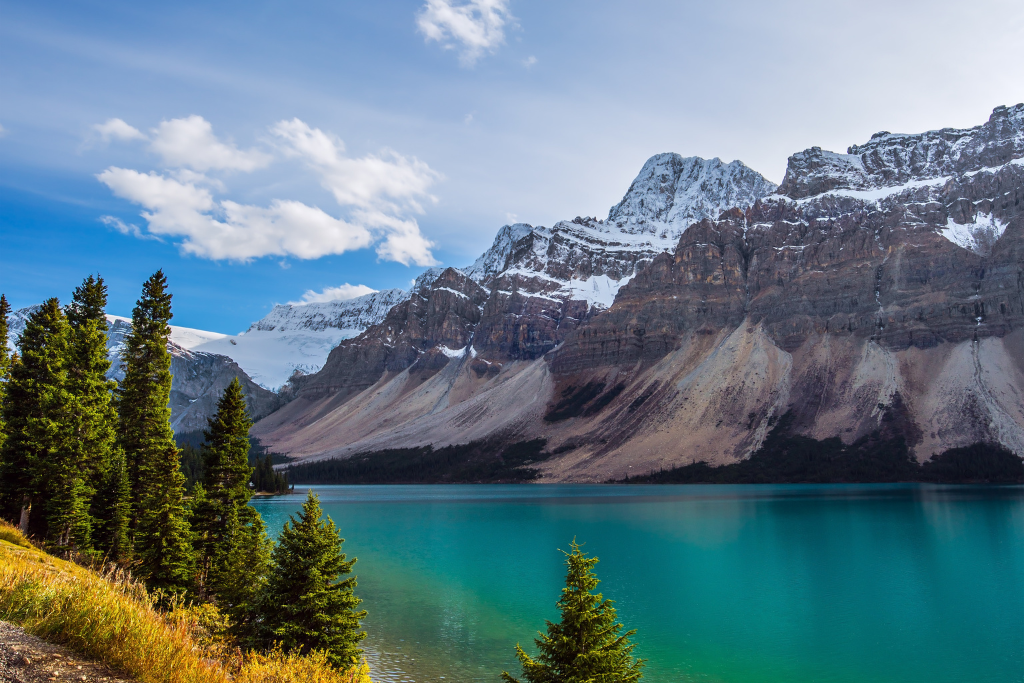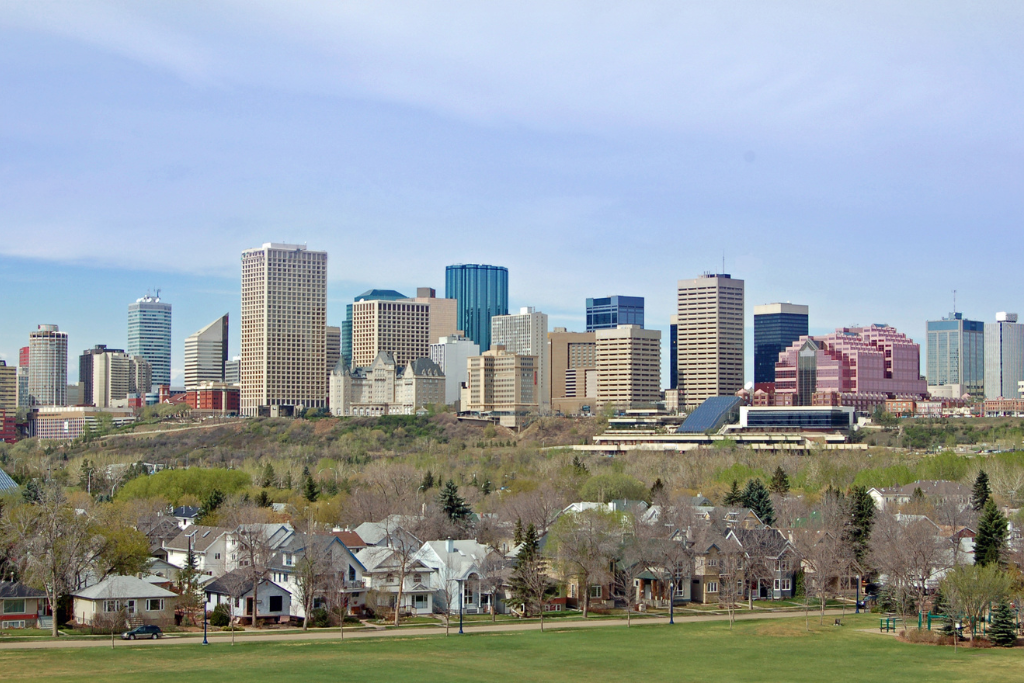The Average Electricity Rates in Alberta
Should You Use Electricity or Natural Gas in Alberta?
The electricity commodity is currently 21 to 22 times more expensive than natural gas in Alberta, according to the Utilities Consumer Advocate (UCA) 12-month average from October 2023 to September 2024.
If we talk about Alberta specifically, natural gas is the cheapest and is the point of production for Canadian natural gas. Nearly half of the electricity generation mix comes from coal in Alberta, so a natural gas furnace would be a cheaper option.
Here’s a brief comparison:
| Gigajoule (GJ) | Kilowatt-hour (kWh) |
| 1.00 | 277.778 |
| 3.6 x 10⁻³ | 1.00 |
1 kWh will cost you 12.01 ¢/kwh meanwhile, natural gas is only $0.66/GJ.
However, gas furnaces are 78-98.5% efficient depending on the age and model, compared to the 100% efficiency offered by electric furnaces. But gas furnaces can heat up your home quickly, thereby using less energy than a comparable electric alternative.
What Are the Factors Affecting the Cost of Electricity?
Alberta is the only province in which the market determines the price of power, and most of the power generation is based on fossil fuels (43% from coal and 49% from natural gas). The Alberta Utilities Commission (AUC) reviews the cost of regulated utilities in detail and approves the rates to ensure all the charges are fair and reasonable.
There are a few other factors that affect the cost of electricity in Alberta, including location (rural or urban), municipality, distribution service area, electricity supply charge, GST, transmission tariff, distribution tariff and electricity demand, to name a few.
Here are a few other things you’ll find on your bill: Energy charges (19-35%), Administration charge (13-23%), Distribution charge (24-52%), Transmission charge (13-23%), Rate riders (0-5%), Local access fee rider (5-10%), Transmission adjustment riders (0-1%) and Balancing Pool adjustment rider (0-1%).
And finally, the cost of electricity also depends on whether you opt for fixed or variable rates.
- Fixed rate: You have to pay a fixed rate for the duration of the contract (usually 1, 3, or 5 years). Politics, refinery accidents, trade wars, or any other external factor does not affect the fixed rate in any way.
- Variable rate: You agree to pay whatever the utility determines to be a fair price based upon current market conditions. The rate will change every month depending on outside influences.
What Are the Average Monthly Electricity Rates in Alberta?
The GOA Act mandates RRO providers to recover the real cost of power over the price cap, which will be applied to RRO customer bills between January 1st 2025 and December 31st 2026. RRO clients will see the deferral rate and electricity rate below as a single line item on page 2.
| Effective Date | Approved RRO market electricityrate (¢ per kWh) | Administration charges ($ per day) |
| January 1st 2025 | 12.01 ¢ | $0.285 |
A smart thermostat helps regulate temperature throughout the day and night to reduce energy consumption and costs. TELUS SmartEnergy is an energy management solution that provides convenient control of your smart thermostats and smart plugs in one easy-to-use app, helping you lower your household budget through energy savings.
Monitor and optimize your home’s energy use, identify consumption habits, automate energy-saving actions for your connected devices, and earn rewards by participating in energy-saving events.
According to AUC, a typical residential consumer’s electricity bill in Alberta, consuming 600 kWh per month, is around $91.70.
Sign up with ATCOenergy and get $50 off your first bill using promo code “ALBERTA”.
The Average Rates for Water Bills in Alberta
How Does Water Work in Alberta?
Water in Alberta is managed through various local utilities, delivering to both residential and non-residential clients, charging based on consumption and a monthly service fee linked to meter size. Other water charges include: wastewater treatment charges, drainage charges, stormwater and sanitary charges.
The type of charges can vary from community to community and your local water utility. Most water bills in Alberta have two main components:
- Fixed fee component: Cost and maintenance of your water meter, cost of reading the meter monthly and issuing your bill.
- Variable amount: Cost of drawing water from the water source, treating, pumping and delivering the water to your house. Wastewater and sanitary drainage are also included in the variable amount.
What Are the Factors Affecting the Cost of Water in Alberta?
The municipality where you live owns, operates and maintains the water utility, and sometimes it contacts a private company (like EPCOR, ENMAX) to handle the water-related services. Here are a few factors that affect the cost of water:maintenance and upgrades to the water system, type of home, household members, leaking lines or connections, seasonal usage, appliances and water treatment plant costs.
What Are the Average Rates for Water Bills per Month in Alberta?
The Alberta Utilities Commission approves investor-owned water utility rates.
| Company Name | Average Rate Per Cubic Meter (m3) | Fixed Monthly Charge |
| EPCOR (Edmonton) | $2.53 | $46 |
| ENMAX (Calgary) | $1.59 | $15.36 |
Average Monthly Water Bills by Cubic Meter in Alberta
| Cubic Meter (m3) monthly usage | Average Cost $2.06/m3 + $30.68 service charge |
| 10 m3 1-2 people | $51.28 |
| 20 m3 2-3 people | $71.88 |
| 30 m3 3-5 people | $92.48 |
Calgary.ca (2025) & EPCOR (Apr 2024)
Average Natural Gas Prices in Alberta
How Does Natural Gas Work in Alberta?
Alberta gas production represented 80% of total Canadian natural gas production in 2018. The province has an abundance of natural gas and that is the reason, on average, Albertans use the most natural gas per household in Canada—110 GJ (annually).The Alberta Utilities Commission regulates the monthly gas prices.
Similar to how electricity works in Alberta, you have two options with natural gas: Buy from an AUC regulated provider or buy from a competitive retailer.
The purchase and delivery of natural gas might be handled by two different companies or just one. Following are the gas retailers in Alberta: Gas Alberta Inc., Direct Energy Regulated Services (DERS) and Apex Utilities Inc. (AUI).
What Are the Factors Affecting the Cost of Natural Gas?
Natural gas prices are established through the Natural Gas Exchange (NGX) electronic trading platform. The sellers put gas on sale, and the buyers (gas utility companies) bid for purchase. The prices fluctuate depending on current supply and demand. Major weather events and seasons can also affect the market price.
Here are a few other factors that affect the cost of natural gas in Alberta: transmission and distribution service area, municipality, season (winter or summer), delivery charge and usage.
Alberta Natural Gas Bill Components: Energy charges/Cost of gas) – 21-26%, Carbon charge – 17-21%, Delivery charge (variable) – 10-24%, Delivery charge (fixed) – 14-20%, Municipal franchise fee – 7-14%, Rate orders – 0-13% and Administration fee – 1-5%.
ATCO charges its consumers based on the average usage of natural gas in a month. Here’s the breakdown:
| Usage | Criteria | Fixed charge ($/daily) | Delivery Only Variable Energy ($/GJ) |
| Low Use | <1200 GJ/YR | 0.993 | 1.043 |
| Mid Use | 1200-8000 GJ/YR | 1.899 | 1.062 |
| High Use | >8000 GJ/YR | 7.214 | 0.283 ($/GJ/Day) |
What Are the Average Monthly Natural Gas Prices in Alberta?
| 2025 Natural Gas Regulated Rates in $/GJ | |||
| Retailer | Direct Energy Regulated Services | Apex Utilities (Formerly AltaGas Utilities) | |
| Distributor | ATCO Gas | Apex Utilities | |
| January 2025 | $1.986 | $1.935 | |
| *January 2025 Average /10 GJ | $49.65 | $73.65 | |
Average = $61.65 per month for the natural gas bill.
*This includes fixed daily charges of $0.993 for ATCO and $1.810 for APEX.
*Average of 2025 natural gas rates considering the average home in Alberta uses 600 kWh of electricity and 10 GJ of natural gas every month.
ATCO (Jan 2025) & UCA Helps 1 & UCA Helps 2 (Jan 2025)
The Average Cost of Internet Bills in Alberta
How Does the Internet Work in Alberta?
The Alberta government aims to ensure high-speed internet accessibility for its urban and rural populations, recognizing its importance with 81% living in urban areas and 19% in rural areas.
There are four popular types of internet connections available in Alberta: DSL (5-45 Mbps), Cable (20-200 Mbps), Fiber-optic (50-1000 Mbps) and Satellite (50-150).
Several local Internet Service Providers (ISPs) charge you based on the internet speed (download and upload) and bandwidth. Moreover, the type of internet connection and the type of internet plan can also impact how much you’ll be paying watching YouTube videos and surfing the internet.
The rural and remote areas use Fixed Wireless Access (FWA) for internet access. While in an urban area, you can opt for any type of internet connection like TELUS Purefibre Internet. There are 45 Wireless Internet Service Providers (WISPs) in the province!
What Are the Factors Affecting the Cost of the Internet?
The following factors affect the cost of the Internet: Type of internet connection, speed and bandwidth, province/city and the provider itself.
Average Cost of Monthly Internet Bill in Alberta
The following factors affect the cost of the internet: Speed and bandwidth, rural or urban (urban prices approximately 13% lower than rural prices), type of internet connection (DSL, cable, fiber-optic, or satellite) and ISP.
What Is the Average Cost of Internet Bills per Month in Alberta?
According to the CRTC (The Canadian Radio-television and Telecommunications Commission), the average person in Alberta pays $74.00 per month for a 50/10 Mbps service with unlimited monthly data transfer. Here are the average Internet costs in Alberta based on type of connection and speed.
| Type of Internet | Mbps | Average Cost |
| DSL | 25/2.5 Mbps | $34.95/month |
| Cable | 100/10 Mbps | $57.00/month |
| Fiber-optic | 3/3 Gbps | $120.00/month |
| Satellite | 100 Mbps | $129.99/month |
Oxio (Jan 2025), TELUS (Jan 2025) & Distributel (Jan 2025)
The Average Cost of Cable Bills in Alberta
How Does Cable Work in Alberta?
The cable services are affordable due to the legislation that requires cable providers to offer at least one budget-friendly subscription option.
Many cable TV providers in Alberta have also moved towards IPTV, but there can be interruptions similar to those experienced in your internet connection.
What Are the Factors Affecting the Cost of Cable?
Legacy cable TV heavily depends on the physical hardware and infrastructure for uninterrupted services. Both of these can affect the cost of cable. Here are a few other factors that determine how much you’re going to pay for your favourite channels: Area of service, external factors (local competition, downturn in the cable market, etc.), local or state taxation and fee laws, costs of shows and broadcasts, cable prices, number of channels, type of channels (sports, international, local, news, entertainment, etc.), HD Channels and VOD (Video on Demand) availability.
What Are Some Affordable Alternatives to Cable?
Legacy cable means “cables,” and lots of them. If you don’t want to get into the hassle, here are a few affordable alternatives to cable: IPTV, Satellite TV, YouTube TV, FuboTV, Shaw TV, CipherTV (AEBC), VMEDIA TV or Telus Optik TV.
What Is the Average Cost of Cable Bills per Month in Alberta?
Here are the cable costs in Alberta based on their basic TV package type of plan.
| Cable TV Company Name | Basic TV Package | Rates |
| TELUS Optik TV | Core | $25.00 |
| TekSavvy TV | TekSavvy TV Basic | $25.00 |
| Freedom TV | Starter TV | $10.00 |
The Average Cost of Home Phone Bills in Alberta
How Do Home Phones Work in Alberta?
Many home phone service providers in Alberta offer unlimited calling within Canada and USA with low long-distance calling rates. Many Albertans have also switched to wireless communication devices instead, and that has limited home phones to specific areas. Make sure you check the availability of services before hitting that “Buy Plan” button.
Here are a few useful features that your home phone should have; Call Display, Call Screen, Call Waiting, voicemail, 3 Way Calling, Call Return, Call Forward, Caller ID block, long-distance calling and Smart Ring.
What Are the Factors Affecting the Cost of Home Phones?
Home phones are still in the game as they offer perks that a digital phone or VoIP cannot match. The added features decide how much the service provider is going to charge you. Here are some of the factors that affect the cost of home phones: Number of countries included in the plan, added taxes or fees, added features like (Long-distance calling, 3-way calling, caller ID block, online account management, etc.), voicemail and call waiting.
What Is the Average Cost of Home Phone Bills per Month in Alberta?
Here are the home phone costs in Alberta based on their type of plans:
| Company Name | Plan and Inclusions | Rates |
| Voiply | Residential VoIP Phone Service – Unlimited calling + 20 calling features | $11.95/mon. |
| TELUS | Home phone Lite – Unlimited local calling+ 1 calling feature | $35/mon. |
*** Phone activation, connection fees and other one time charges are not included in the rates above.
Average Utility Costs Calgary
Calgary is the most populous city in Alberta, with a population of roughly 1.25 million people. The average annual temperature is 3.6 °C, and snow depths of greater than 1 cm are seen on about 88 days each year in Calgary. These weather conditions determine how much you’re going to spend on your HVAC. Furthermore, there are a number of energy retailers that cater to the needs of residents of Calgary. The cost of living in Calgary is $3,209.90 per month.
Calgary Utilities Cost
| Utility | Average Monthly Cost |
| Electricity | $91.70 |
| Water (Based on average consumption of 2-3 people) | $71.88 |
| ATCO Gas Yearly Average: 10 GJ @ $1.986/GJ | $49.65 |
| Internet 50/10 Mbps-Unlimited | $74 |
| Cable | $20.00 |
| Home Phone | $23.47 |
| Total average utilities cost in Calgary (Electricity not included) | $330.70 |
ATCO (Jan 2025), UCA Helps 1 & UCA Helps 2 (2025), & Calgary.ca (2025)
The Average Cost of Utilities Across Canada
| Province | Electricity | Water | Gas | Internet | Cable | Home Phone | Total Monthly Cost |
| Quebec | $242 | Included in hydro | $85 | $69 | $33 | $30.65 | 374.65$ (gas not included) |
| Ontario | $92.95 | $90.40 | $221.89 | $64.00 | $36.33 | $34.00 | $317.68 (gas not included) |
| Alberta | $91.70 | $71.88 | $61.65 | $74 | $20.00 | $23.47 | $251 (electricity not included) |
| British Columbia | $232.21 | $244 | $101.89 | $75 | $16.66 | $21.31 | $447.07 (gas not included) |
| Manitoba | $90.82 | $73.90 | $90.83 | $67.00 | $50 | $47.85 | $329.57 (gas not included) |
| Saskatchewan | $152.29 | $100.36 | $123.94 | $69.00 | $75.00 | $25.21 | $421.86 (gas not included) |
| PEI | $149.59 | $105 | $280 | $72 | $32.25 | $23.31 | $382.15 (gas not included) |
| New Brunswick | $135.36 | $100 | $124 | $70 | $40 | $23 | $368.36 (gas not included) |
| Nova Scotia | $195 | $108 | $179 | $71 | $25 | $21 | $426.67 (gas not included) |
Conclusion
Alberta is the energy-leading province in Canada due to its leadership in the oil and gas industry and a fast-growing economy. Utilities ensure that your household functions properly and remains comfortable, but the cost is recurring and variable. Knowing average household utility costs can help you reduce your usage and save tons of money at the end of the year.
Are you moving to Alberta soon? Check out 7 things to know when moving to Alberta.





